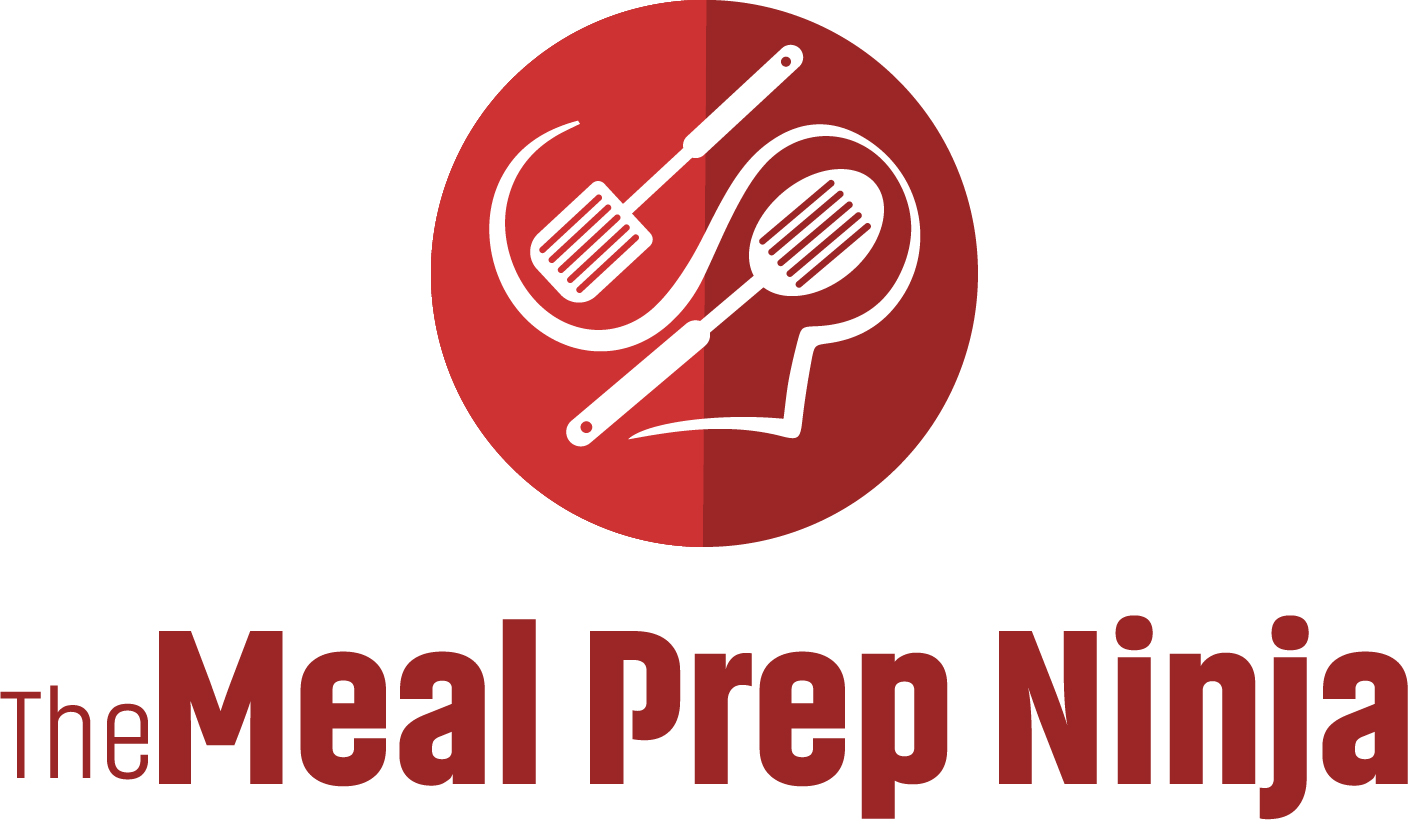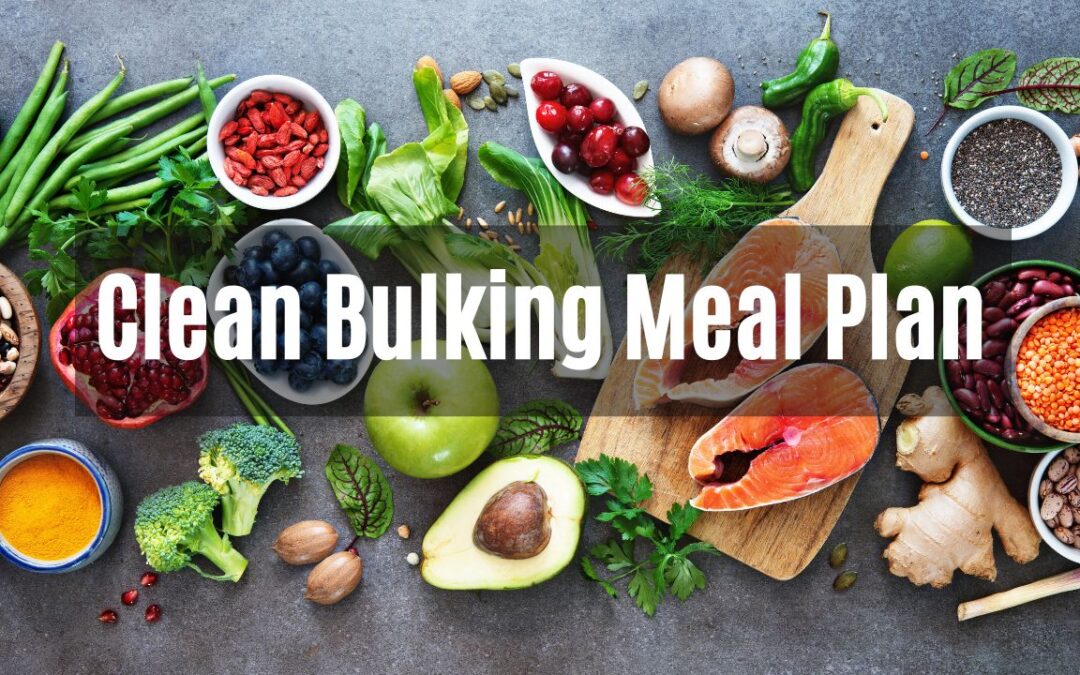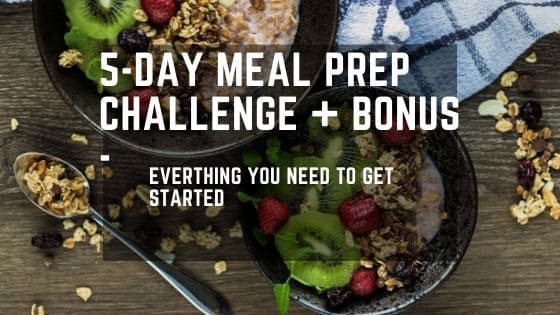Last Updated on February 26, 2023 by TheMealPrepNinja
If you’re looking to bulk up, it’s time to pump those weights and gain muscle mass.
But don’t worry about packing on the pounds of fat – with a lean bulking approach, you can stay in shape while increasing your strength!
With an effective nutrition plan and smart training routines designed for this purpose, I’m sure that soon enough we’ll see you reaching peak physical condition as never before.
Why Should You Lean Bulk?
Lean bulking is a great way to build muscle while avoiding gaining too much body fat. It involves eating enough calories to support muscle growth, but not so many calories that you gain excess body fat. Additionally, lean bulk meal plans are typically easier to maintain than other types of diets because they provide more flexibility and don’t require as much calorie counting. Overall, if you’re looking to build lean muscle, lean bulking is a great option. Here are the 10 best books on nutrition.
What Are The Benefits Of Clean Bulking?
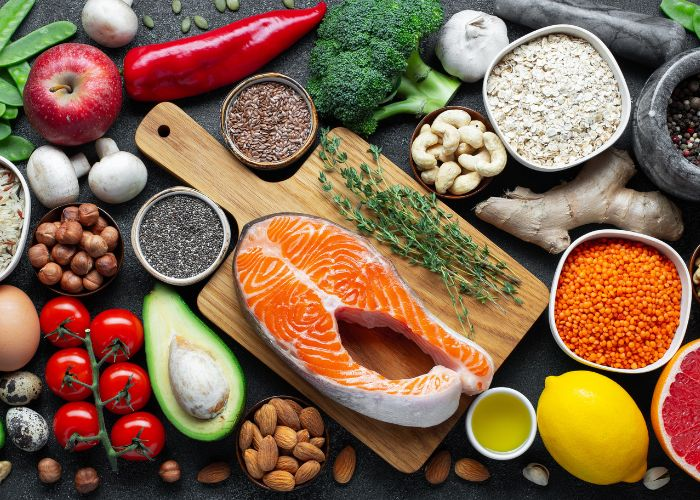
Clean bulking is a great way to build muscle while avoiding gaining excess body fat. It involves eating enough calories to support muscle growth, but not so many calories that you gain excess body fat. Unlike other bulking diets, clean bulking requires that most of your calorie intake comes from whole food sources.
This means you’ll be consuming fewer processed foods and more natural, nutrient-dense food sources. Additionally, clean bulking is easier to maintain compared to other diets since it allows for more flexibility.
What Should You Eat When Clean Bulking?
To successfully lean bulk, you’ll want to focus on eating a balanced diet that contains plenty of whole grains, lean protein sources, and healthy fats like olive oil, fruits, and vegetables. Aim to get most of your calories from whole food sources like lean meats, fish, eggs, nuts, seeds, whole grains, and fruits and vegetables.
Additionally, be sure to include plenty of high-quality proteins in your meals as these are essential for muscle growth. Lastly, don’t forget to include healthy fats in your diet. Healthy fats are important for a number of reasons, but most importantly they help to keep you satiated and provide essential vitamins and minerals and provide more calories.
How Many Calories Should You Eat When Clean Bulking?
The number of calories you need when clean bulking will depend on a variety of factors, including your current weight and activity level. As a general rule, you should aim to consume at least 15-18 calories per pound of body weight. However, if you’re very active or trying to build more muscle mass, you may need closer to 20-25 calories per pound of body weight. It is important to know your total daily calorie intake so that your in a caloric surplus.
Breakfast for Lean Bulking
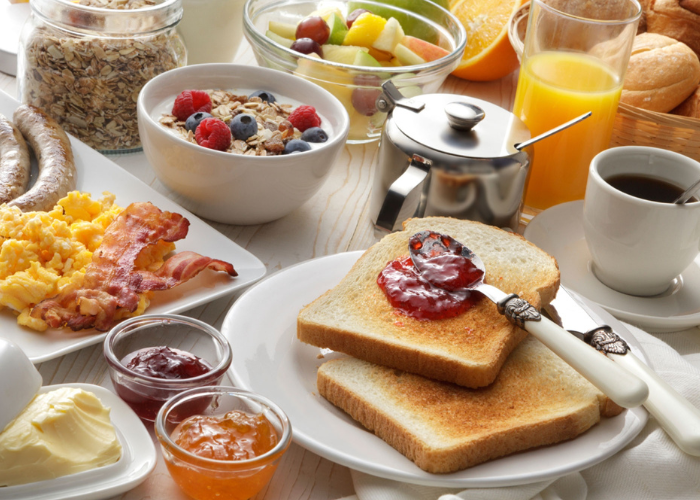
When clean bulking, it’s important to start your day off with a healthy breakfast. A great option is an oatmeal topped with fruits and nuts, or eggs with whole grain toast and spinach. You could also try a smoothie bowl made with Greek yogurt, cottage cheese, banana, peanut butter, and almond milk.
A Lean Bulk Meal Plan: Counting Calories and Macros
It’s important to track your calorie and macro intake. This will help you ensure that you’re eating enough calories to support muscle growth, but not so many calories that you gain excess body fat. To do this, you can use an online calorie-tracking app like MyFitnessPal or Cronometer. All you do is input some information like your body weight and it will give you a calorie intake.
Ideal Protein Amount for a Clean Bulk
When lean bulking, it’s important to consume enough protein to support muscle growth. For most people, this means consuming 1-1.5 grams of protein per pound of body weight per day. This equates to about 140-210 grams of protein for a person who weighs 140 pounds. It’s also important to spread your protein intake out throughout the day, consuming at least 20-30 grams of protein per meal. This will minimize fat gain.
How Long Does It Take to Gain Weight and Muscle When Bulking?
The amount of time it takes to gain weight and muscle when bulking will depend on several factors, including your current body composition, training intensity, and diet. Generally speaking, most people can expect to gain between 0.5-1 pound of weight per week while following a lean bulk meal plan. However, this number could be higher or lower depending on individual factors.
As you can see, lean bulk meal plan is a great way to build lean muscle without gaining excess body fat. By carefully tracking your calorie and macro intake, eating plenty of nutrient-dense whole foods, and providing your body with enough protein each day, you can successfully gain muscle while avoiding unwanted fat gain.
Why You Shouldn’t Avoid Carbs
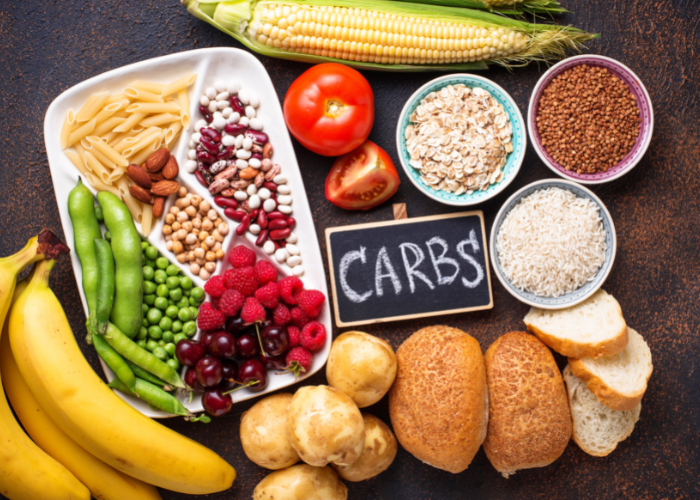
Contrary to popular belief, carbs can be an important part of a successful clean bulk. Carbs provide your body with energy and help you build lean muscle. Aim to get most of your dietary carbohydrates from nutrient-dense sources such as fruits, vegetables, grains, and legumes. When timing your carb consumption for maximum benefit, try to eat most of your carbs around your workout. This will help you maximize energy and muscle growth. A lean bulk meal plan is a great way to go if you want sustainable results.
Foods to limit or avoid
While there are plenty of healthy and nutritious foods you should be eating when lean bulking, there are also some foods that should be limited or avoided.
These include processed and refined carbs, sugary drinks and treats, unhealthy fats, and processed meats. Additionally, try to limit your intake of alcohol as it can have a negative effect on your muscle growth and recovery.
Eating these types of foods are called dirty bulk. Dirty bulk is when you eat any type of food including junk food. Here is a list of the 21 best healthy junk food ideas.
Avoid Junk Food
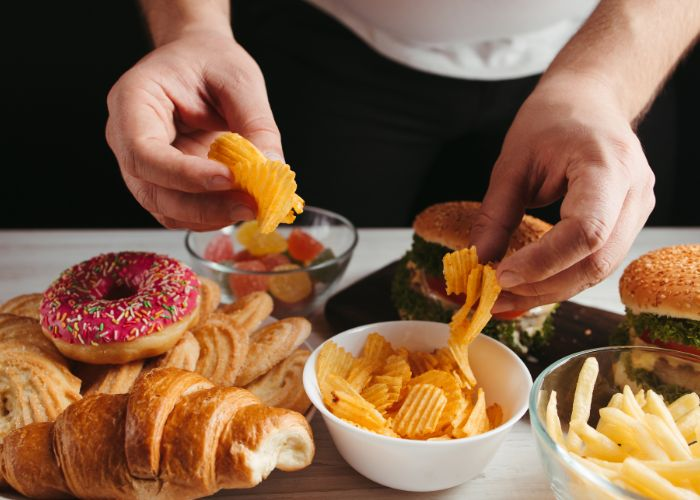
When lean bulking, it’s important to avoid junk food and processed items as much as possible. Processed foods are usually high in calories but low in nutrients, so they can lead to unwanted fat gain. Instead, focus on eating whole, unprocessed foods that are packed with essential vitamins and minerals.
Additional Ways to Gain Weight in a Healthy Way
An additional way to gain weight is to lower the amount of cardio you do and increase your resistance training. This will help you build lean muscle, which can lead to weight gain. Additionally, if you find yourself not gaining enough weight with diet alone, try adding in a weight gainer protein shake or supplement. These are designed to provide additional calories for those looking to bulk up without gaining fat.
Clean Bulk Food Choices
When lean bulking, there are many healthy foods to choose from that can help you reach your goals. These include lean proteins like fish, chicken breast, and eggs; complex carbohydrates such as sweet potatoes, oats, and brown rice; healthy fats such as avocados, nuts, and olive oil; and plenty of fruits and vegetables. You can also include fatty fish for extra calories.
Post-Workout Recovery and Lean Muscle Gain
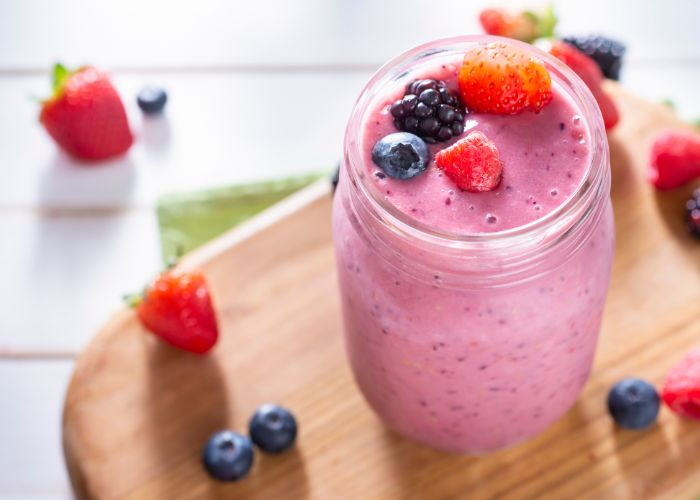
In addition to eating plenty of healthy foods, you should also focus on post-workout recovery. This includes consuming a combination of protein and carbohydrates shortly after your workout to help replenish muscle glycogen stores and aid in muscle repair. Additionally, try to get adequate sleep each night as it helps with both overall recovery and lean muscle gains.
Snack On Fruits
Finally, don’t forget to snack! Eating small snacks between meals can help keep you feeling full and energized throughout the day. Healthy snacking options include fruit, nuts, yogurt, and low-fat string cheese.
Weekly Lean Bulk Meal Plan Examples
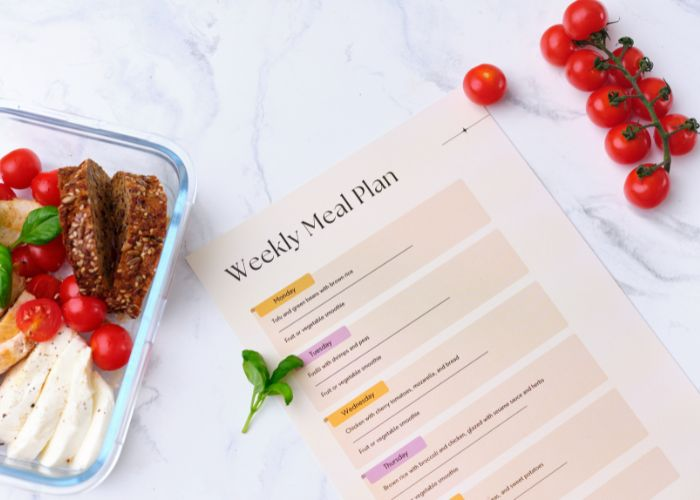
Here are some examples of weekly meal plans for a lean bulk:
-Monday
Breakfast: Omelette with vegetables and whole wheat toast
Snack: Protein shake
Lunch: Chicken salad with brown rice
Snack: Greek yogurt with berries
Dinner: Salmon with quinoa and roasted vegetables
-Tuesday
Breakfast: Scrambled eggs with spinach and whole wheat toast
Snack: Protein bar
Lunch: Tuna salad with brown rice
Snack: Apple with peanut butter
Dinner: Turkey burger with sweet potato fries
-Wednesday
Breakfast: Pancakes with fruit and yogurt
Snack: Protein shake
Lunch: Grilled chicken sandwich on whole wheat bread
Snack: Celery with almond butter
Dinner: Beef stir-fry with rice and vegetables
-Thursday
Breakfast: Oatmeal with protein powder and berries
Snack: Hard-boiled egg
Lunch: Chicken wrap with avocado and whole grain tortilla
Snack: Banana with peanut butter
Dinner: Pork chops with sweet potato and broccoli
Choose Your Plan
Your body is unique, so why settle for a one-size-fits-all plan? You deserve to find the nutrition and fitness regimen that caters specifically to your individual needs. Discover the right approach today!
Calorie Surplus
Building muscle is more than just lifting weights – you need to be in a calorie surplus. How do you achieve this? Start by figuring out your TDEE (total daily energy expenditure). This will tell you how many calories your body needs for basic functioning and should serve as the baseline from which to increase or decrease intake depending on goals. Aim for 5-15% above this number when lean bulking, so that gains are maximized without an abundance of fat gain. Keep it clean!
May prevent negative health effects
When you lean bulk, you gain weight slowly and steadily and put on more lean tissue than fat. This way, you may prevent some of the negative health effects that can come with gaining too much fat in a short period.
In addition to this, It is important to eat clean and nutritionally balanced meals to get the results you want. Here’s an example 7-day meal plan for clean bulking:
What to Eat at Night to Finish Your Clean Bulk
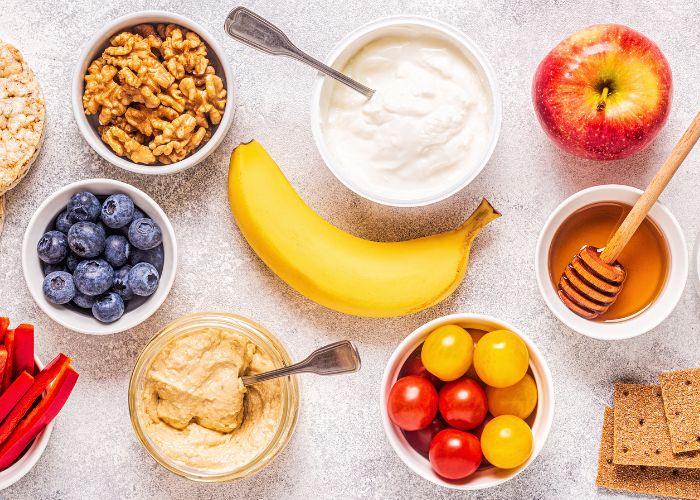
When bulking, it is important to eat clean and properly balanced meals throughout the day. It is especially important to focus on nighttime meals since they fuel muscle growth while you are resting.
Try to include a light source of protein with complex carbohydrates and some healthy fats in your evening meals. This combination will keep you full during the night and help you to build lean muscle.
Why You Shouldn’t Avoid Healthy Fats
When you are trying to gain muscle, it can be easy to focus on protein and carbohydrates. However, eating healthy fats is just as important for your diet’s success.
Fats provide your body with essential fatty acids, which have been linked to improved heart health, increased testosterone levels, and a healthier metabolism.
Try to include sources of good fats like olives, avocados, and nuts in your meals to ensure that you are getting the proper amount of nutrients while lean bulking.
Improved Performance
By eating healthy meals and snacks throughout the day, you can fuel your workouts and improve your performance.
Having energy consistently before and after working out is an important factor in seeing results quickly.
Make sure to take in enough calories at meal times and as snacks to ensure you have enough energy for any physical activity you do during the day.
Choosing Carbohydrates to Eat
Carbohydrates are an important source of energy while you are bulking. Choose complex carbohydrates like oats, quinoa, sweet potatoes, and whole wheat bread over simple carbs like white rice and pasta when possible.
These will provide your body with sustained energy to keep you feeling full longer and help fuel your workouts.
Have A Cheat Day

There is no need for a cheat day unless you really need one. Having a cheat day can help with cravings and keep you motivated to stick to your meal plan.
If you do decide to have a cheat day, make sure that it is only one day, and don’t overindulge. Eating too much on your cheat day can easily erase any progress you made during the week. Cheat days are more for people who are in a calorie deficit.
Low Carb Rest Day
You can consume less carbohydrates on days that you are not training as hard. This will help your body to better absorb the nutrients from the food you are consuming and allow for quicker recovery time. You don’t want too many carbs on rest days.
May Not See Results As Quickly
No matter how hard you work, seeing results from your clean bulking diet may take time. Try to stay patient and consistent with your nutrition so that you can eventually get the desired outcome.
It is important to remember that everyone’s body type is unique, and what works for some people may not work for others.
Track Your Progress
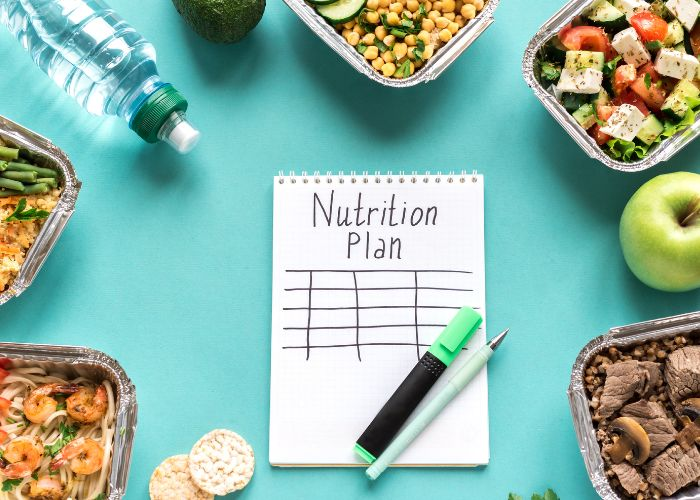
To ensure that you are making progress, it is a good idea to track your results. You can do this by tracking your calories, macronutrients, and body measurements.
This will allow you to adjust your diet as needed and make sure that you are staying consistent with your nutrition plan.
It also helps if you take weekly pictures of yourself to see the difference.
Final Thoughts – Lean Bulk Meal Plan
By following these guidelines and tips, you can successfully gain lean muscle while keeping body fat to a minimum. Lean bulking is an effective way to reach your fitness goals without having to sacrifice the quality of your diet. With patience and dedication, you can transform your physique and reach new levels of fitness. Good luck!

Jim Lopez, the founder and editor of The Meal Prep Ninja, shares his journey from a passionate bodybuilder and fitness enthusiast to a certified nutrition coach. Certified by Precision Nutrition, Jim aims to empower others with knowledge on meal prep and nutrition, offering resources for busy individuals to enjoy low-calorie, tasty foods. His blog is a community for sharing healthy eating habits and meal prep recipes
